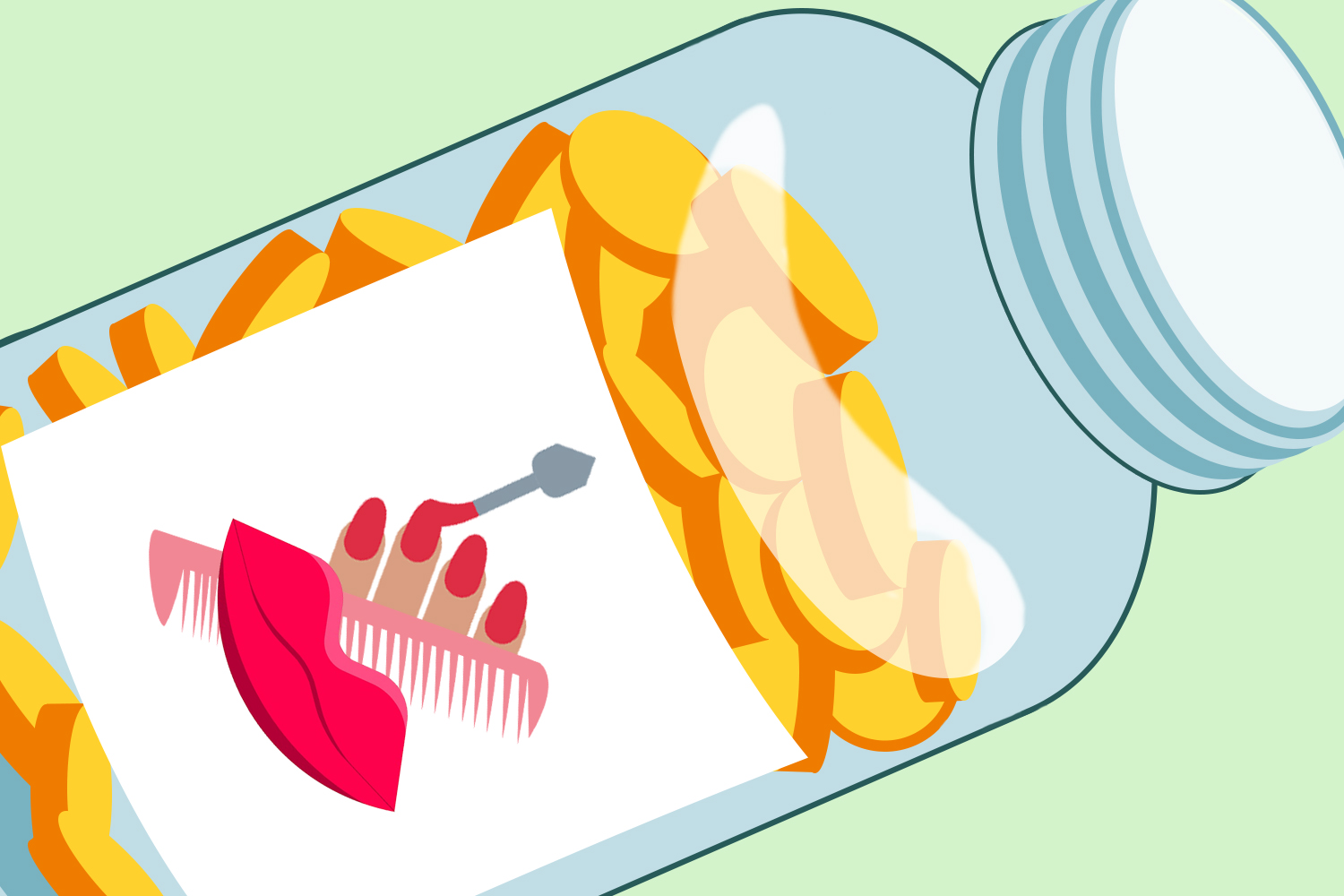There was a time when a supplement meant a dull, brown container full of fish oil capsules tucked away in the corner of a convenience store. That was until the beauty industry got a hold of things.
While vitamin chain GNC planned to close 200 stores in 2018, the beauty industry was able to pick up where they left off, redesigning the world of supplements into one of pretty pills.
An early front-runner on the scene was Gwyneth Paltrow’s Goop, launching cheeky pill packets in 2017, with names like High School Genes and Why Am I So Effing Tired? Even Bobbi Brown wanted in on the action, creating the supplement brand Evolution_18 earlier this year, after leaving her namesake brand. There is much more where that came from, with the beauty supplement industry estimated to rise from $3.5 billion in 2016 to $6.8 billion by 2024 according to Goldstein Research.
The most identifying feature of a beauty supplement is obviously that it’s beautiful. Companies like Olly bundle their gummies in colorful cube containers featuring illustrations of the flavor printed on the outside. Australian brand The Beauty Chef displays their bio-fermented powders in simple white jars, with sleek labels and their liquid “boosts” in containers resembling face oil except without the dropper top. Miranda Kerr’s Kora Organics package their Glow Supplement powder in teal metallic serving packets.
But beyond the pretty packaging lies the promise. The wide array of powders, pills and gummies nourish customers with hope. They wouldn’t dare try to fix you, just your problems, claiming to enhance your natural features to create the best version of yourself. Thin hair? Ouai haircare has a pill. Dull skin? The Beauty Chef has a Hydration Inner Beauty Boost. Bloated? Evolution_18 has a de-bloat powder. Acne? Hum nutrition has a Daily Cleanse, Clear Skin and Breakout Supplement. Nails breaking? Vital Proteins has a Collagen Peptide.
The question everyone has is if these supplements actually live up to their names. Caudalíe Paris conducted a study for their Vinexpert Dietary Supplements, concluding that the pills, “support the skin’s natural cell renewal to smooth away the appearance of wrinkles and increase the look of firmness.” And while the supplements may work, the problem is the study only included 19 people, hardly an accurate representation of the world at large.
Also featured on almost every supplement company website is this description: “These statements have not been evaluated by the U.S. Food and Drug Administration. These products are not intended to diagnose, treat, cure, or prevent any disease.” This leaves room for concern over the lack of regulation over the beauty supplement industry.
Despite these findings, many consumers still claim to see results. Whether real or placebo, the industry may be onto something. What’s bigger than the presence of these products is the new space they’ve created. Achieving beauty from within versus brushed on from the outside is very much a wellness mantra.
It is thinking about beauty in the same capacity as eating vegetables, going to the gym or drinking 8 liters of water a day. The overlap of skincare and haircare into the wellness space accompanies the trends of boutique fitness and clean beauty. Beauty and wellness are converging into something bigger by becoming a category promoting self-care and self-love.
Words and Visual by Hannah Harris

